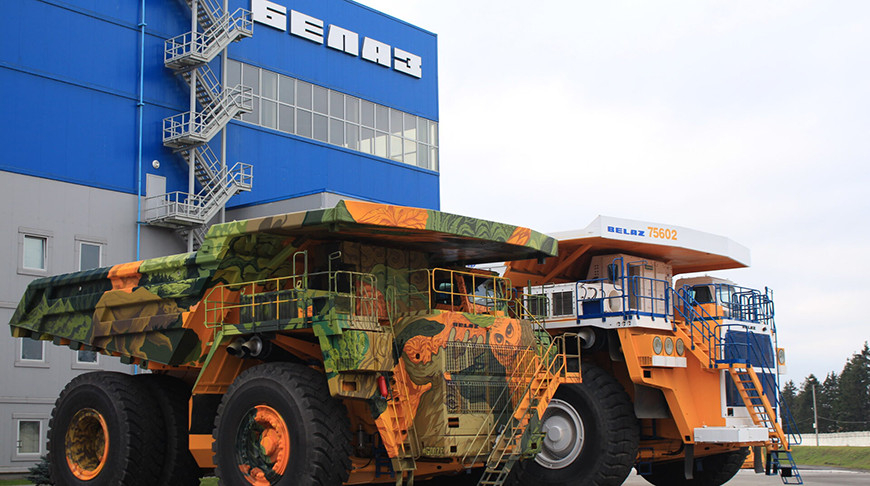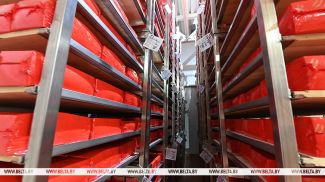
Image credit: The Republican Union of Tourism Industry
MINSK, 16 October (BelTA) – Belarus’ experience of industrial tourism development has been presented at the forum “Open industry: Safety standards. New-generation experts. Growth synergy” in Moscow, the press service of the Republican Union of Tourism Industry (RUTI) told BelTA.
The event brought together experts from Russia, Belarus, and Kazakhstan. Participants discussed not so much successes as problems: personnel training, certification, and the development of common safety standards.
“Industrial tourism is no longer a niche phenomenon. Today it is a tool for image building, investment, and career guidance. But with the growth of interest comes the question: who will train specialists for this field and how can we make tours of enterprises safe?” noted the RUTI press service.
The topic is also relevant for Belarus. Nearly 100 enterprises already host tours. The number of visitors grows higher every year: in 2024 there were almost 267,000 people, a quarter more than the previous year. But there are only a few full-time industrial tourism specialists on the payroll. This work is most often done by HR department employees, marketing specialists, or ideologists, for whom excursions represent additional workload.
“It is easier for us to teach interested specialists to work with tourists than it is for tour guides to understand technological processes and peculiarities of manufacturing. No one can tell you about a company better than someone who works there,” believes Dmitry Skvorchevsky, Deputy Chairman of the Board of the Republican Union of Tourism Industry.
In his opinion, the key to success is training personnel directly at the enterprises where employees know the manufacturing process from the inside. At the same time, it is important to assign these jobs to dedicated individuals. It will make industrial tourism a self-sustaining activity.
“Today it is important to retrain existing employees who will be able to handle applications, conduct tours, and develop industrial tourism locally. And in the long term it is worth considering the creation of specialized educational programs, for example, in technical or agricultural higher education institutions, training experts in industrial tourism from scratch, with the participation of experts from the tourism industry,” the expert added.
One of the key news items of the forum was the decision to create an industrial tourism development center at premises of Minsk Tractor Works (MTZ). The center will train specialists in conducting tours at enterprises, develop academic programs, hold events to promote industrial tourism, and share best practices in this field.
At the Innoprom Belarus expo in Minsk an agreement was signed between MTZ and the Industry Personnel Institute. “The Belarusian Institute for Strategic Research and the Republican Union of Tourism Industry support this project in terms of methodology and information. Together with our colleagues we participate in the development of programs for future industrial tourism specialists,” noted Dmitry Skvorchevsky.
So far Russia and Belarus lack a unified approach to training industrial tourism guides and specialists. In some places tours are handled by engineers, in other places by professional guides. Experts propose introducing an audit of educational programs as well as creating a unified classification of enterprise hazards and safety standards for tourists. Long lectures are not acceptable during tours, but at the same time, a formalistic approach should not be allowed. Essentially, enterprises will have to check their tours as strictly as they check their technological processes.
Olga Shandurenko, head of the industrial tourism development program at the Agency for Strategic Initiatives, noted that the economy branch is experiencing significant growth. One of the landmark projects was the joint publication of a guidebook on industrial tourism “Two countries, a thousand factories” together with the Belarusian Institute for Strategic Research. The guidebook summarizes more than 50 enterprises in Russia and Belarus and describes their manufacturing cooperation and tourism potential. It was presented in Chinese and English at the Innoprom Belarus expo in Minsk.
“It is a breakthrough project of the Union State [of Belarus and Russia], demonstrating brilliant methodological experience in the development of industrial tourism,” the Russian expert noted.
The forum concluded with a proposal to launch a federal project called “Open industry”, which will combine the development of industrial tourism, career guidance, and branding of the Union State’s manufacturing sector. Industrial tourism is no longer a local experiment but is becoming part of the industrial policy. And today the question is not whether to do it or not, but how to scale it up, train personnel, and replicate best practices.










